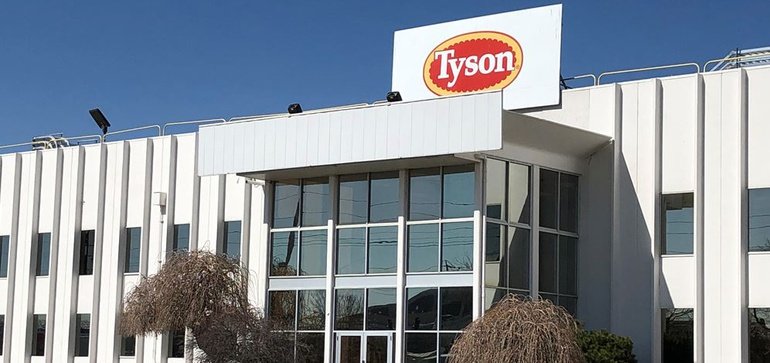Tyson to conduct racial equity audit

Dive Brief:
- Tyson will conduct an audit of its workplaces for racial bias in response to a proposal from a group of shareholders and the Interfaith Center on Corporate Responsibility (ICCR). The group requested the audit in response to reports that Tyson allows a workplace hostile to people of color. The proposal cites a number of recent incidents it says unfairly impacted Black and Latino workers at the company’s poultry plants.
- The one-year audit will be conducted by a third party and the report will be made available to the public, according to a release from the ICCR.
- While Tyson’s overall workforce is diverse, White people make up 72% of its salaried employees. Amid the criticism it has faced, the company has been working to improve career prospects for lower-level workers with development programs including Upward Pathways.
Dive Insight:
Tyson has faced a litany of complaints and legal action about its treatment of workers. It fired seven managers at an Iowa plant after internal investigations found they had bet on which workers would contract COVID-19. During the pandemic, workers’ rights groups filed a civil rights complaint with the U.S. Department of Agriculture, accusing the company of failing to protect its largely Black and Latino meatpacking plant workforce from contracting the virus. Earlier this year, two former employees of a North Carolina plant — both of whom are Black and Muslim — filed a discrimination lawsuit against the company claiming they were repeatedly called a racial slur by a manager throughout their four-year work tenure.
Magaly Licolli, executive director of poultry worker rights nonprofit Venceremos, said in ICCR’s statement that Tyson treats workers of color inhumanely.
“We hope that the company will follow through on its promise to conduct a truthful accounting of its racial equity failures by acknowledging the harm done every day to the Brown and Black poultry workers in its plants, and then go further by implementing systemic solutions to correct this injustice rather than just words on paper,” Licolli said in the statement.
Tyson Senior Director of Public Relations Gary Mickelson told Food Dive that the company had been planning to conduct a “human rights assessment” in 2022 before any investors called on them to do so. He said that Tyson reached out to the ICCR once it received the audit proposal in order to start negotiations about the audit.
Tyson, which hired its first chief officer of diversity, equity and inclusion this summer, has different racial breakdowns of employees based on job level. Its hourly employees are primarily people of color — 26.8% are Black, 29.5% are Hispanic and 27% are White. For salaried employees, 12% are Hispanic and 10% are Black. Only two out of 14 executive roles at Tyson are held by people of color, according to the ICCR.
The company has announced initiatives aimed at promoting a more inclusive and safe workplace. It joined two groups aimed at increasing representation and racial equity, including the McDonald’s Mutual Commitment to Diversity, Equity and Inclusion, which aims to remove barriers to economic opportunity for racial minorities. Mickelson said members of the company’s leadership team have been through unconscious bias training, which he said is being expanded to the rest of the company.
Racial equity audits are designed to provide social and financial information to investors about a company’s operations, according to a post on Harvard Law School forum about corporate governance.
Starbucks performed a similar audit in 2018, after two Black men were arrested at a Philadelphia location while waiting for a business meeting. After the audit, the company gave employees implicit bias training and set diversity goals in hiring. These actions helped the company rehabilitate itself with investors, the authors of the forum post said.
Source: fooddive.com

